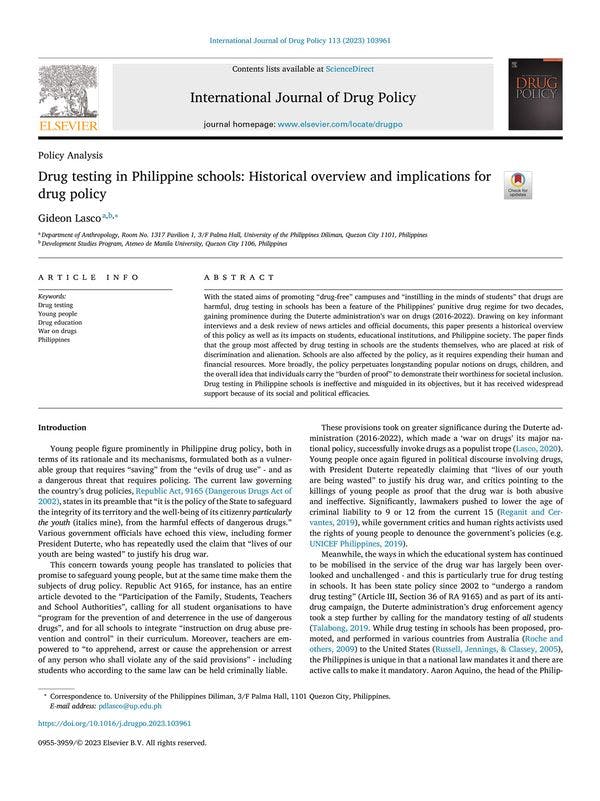Controles de drogas en las escuelas filipinas: Reseña histórica e implicaciones para la política de drogas
Lasco sostiene que someter a los alumnos a pruebas de drogas supone una carga para los recursos del sistema escolar y expone a los estudiantes al riesgo de estigmatización y violencia mortal. Más información, en inglés, está disponible abajo.
With the stated aims of promoting “drug-free” campuses and “instilling in the minds of students” that drugs are harmful, drug testing in schools has been a feature of the Philippines’ punitive drug regime for two decades, gaining prominence during the Duterte administration's war on drugs (2016-2022). Drawing on key informant interviews and a desk review of news articles and official documents, this paper presents a historical overview of this policy as well as its impacts on students, educational institutions, and Philippine society. The paper finds that the group most affected by drug testing in schools are the students themselves, who are placed at risk of discrimination and alienation. Schools are also affected by the policy, as it requires expending their human and financial resources. More broadly, the policy perpetuates longstanding popular notions on drugs, children, and the overall idea that individuals carry the “burden of proof” to demonstrate their worthiness for societal inclusion. Drug testing in Philippine schools is ineffective and misguided in its objectives, but it has received widespread support because of its social and political efficacies.
Perfiles relacionados
- International Journal of Drug Policy
